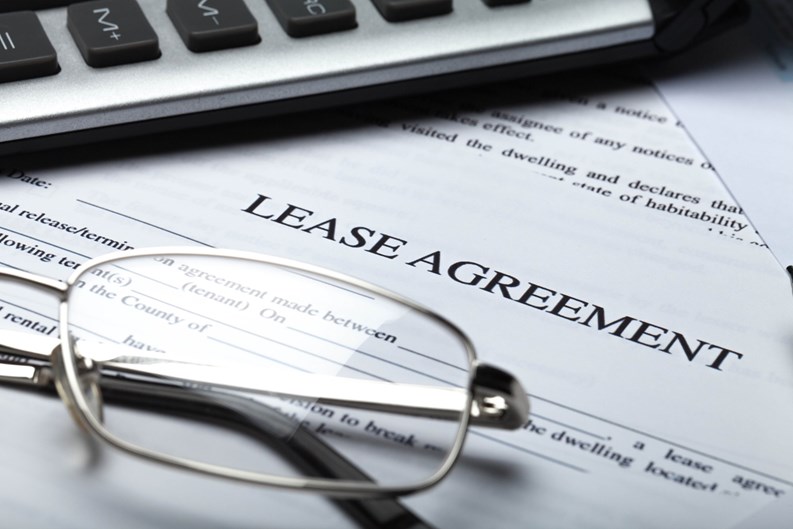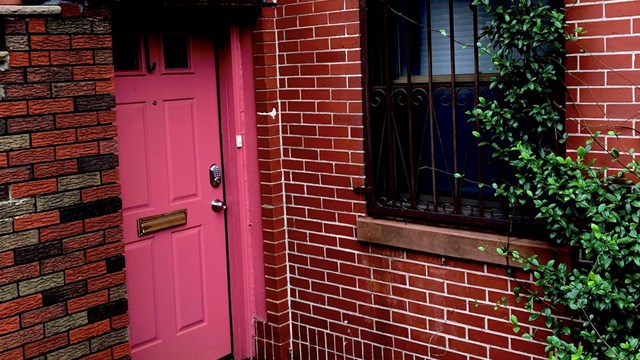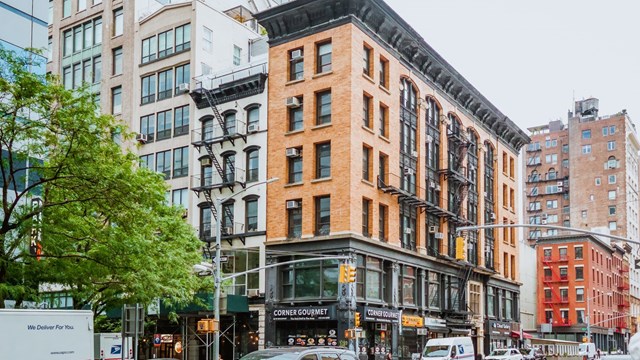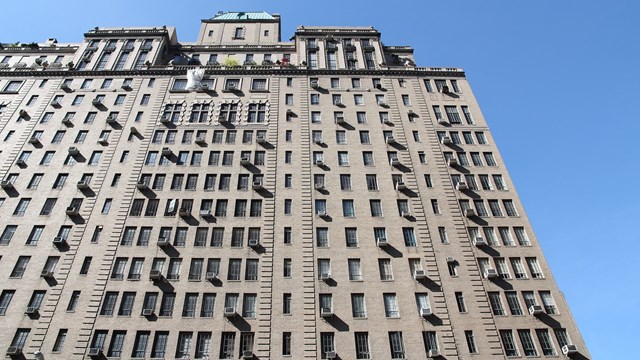The presence of commercial space in a shared interest building can be a blessing for the community - and it can also be a burden. It can bring in much needed additional income to help defray the cost of running the building - but at the same time, it can also come with maintenance, cleanliness, and administrative challenges. Restaurants can attract vermin; parking garages can result in unexpected expenses; offices may cause unwanted traffic through the lobby.
Attorney Hal Coopersmith, a partner in the NYC-based law firm Coopersmith & Coopersmith, is an expert on the subject. CooperatorNews sat down with him to get some professional insight on the benefits, drawbacks, and administrative challenges that come with having a commercial space on your co-op or condo property. Here is Part 1 of that conversation:
CooperatorNews: What are important factors for co-op and condo boards to be
aware of when signing a commercial lease?
Coopersmith: “Perhaps the most important factor for a board and the community to consider is the type of use of the prospective tenant. Certain uses such as bars and restaurants may produce noise and odors, as well as invite vermin, which can be a nuisance to residential occupants. Also of the utmost importance, co-ops should evaluate the credit-worthiness of a prospective tenant, and whether the tenant is likely to default. Businesses in more volatile industries such as food service may be at greater risk of defaulting, particularly on long-term leases.
“The negotiation process for a commercial lease can take a fair amount of time, and combining the lease negotiation process with engaging board members can extend the process even further. In this regard, it is important to have a quality tenant so that a co-op doesn’t have to repeatedly negotiate with prospective tenants and lose out on revenue.
“Finally, whether it’s a new lease or a renewal, it is important for a co-op or condo to know and understand the value of their space and obtain a market rent, as a commercial lease can be a great source of income for shared interest communities.”
CN: What should boards watch out for when considering a tenant and signing a lease? Are there any specific types of tenants or uses that boards might want to think twice about?
Coopersmith: “Will the commercial tenant bring a lot of foot traffic into or around the building lobby, noise or other conditions which may pose a nuisance to residents? Will they require extensive construction that might be disruptive to residents? Will the type of use bring value to the building residents, such as a service the neighborhood is lacking, like parking, laundry, or doctor’s offices? In addition, they should be mindful of the tenant’s ability to pay in the future. Some tenants that do not have a significant balance sheet and might need a larger security deposit.
“All landlords should be wary of dry cleaners and other uses that may pose environmental risks to the property. Landlords may also want to be mindful of uses that require special licensing that can delay lease commencement or require contingencies, such as bars or cannabis shops.”
CN: Are all commercial leases basically the same? Do different types of tenants - retail versus office, for example - require different lease language?
Coopersmith: Leases share some important components, such as rent payment obligations and remedies in the event of a default. Certain retailers may require more free rent up front as they perform their leasehold improvements to the space. Other tenants who do not have a significant balance sheet may also need a ‘good guy’ guarantee from a principal of the tenant to ensure that rent gets paid.”
CN: Are there any legal restrictions on how much rent a co-op or condo landlord can charge a commercial tenant?
Coopersmith: “A commercial tenant should be mindful of what’s permitted in the governing documents of a co-op and condo for their use. In addition, co-op and condo boards should be mindful of ensuring that a commercial tenant executes an alteration agreement, if necessary, to ensure that alterations are performed according to building requirements.
“In 2007, a restrictive tax regulation known as the 80/20 rule that imposed negative tax consequences on co-ops reporting more than 20 percent of their total annual income from sources other than shareholders (such as rental income), was amended to give boards more flexibility under the tax code.
“Co-ops can now maintain their cooperative corporation status for tax purposes if at least 80 percent of their reported income is from shareholders, or if 80 percent of the total square footage of the building is available for use by shareholders, or if 90 percent of the corporation’s expenses are spent for the benefit of shareholders.”
CN: Are there any transfer or other taxes applicable to commercial leases? If so, what are they?
Coopersmith: “Possibly. Leases with terms of over 49 years will be treated as transfers for tax purposes, and therefore will be taxed as a purchase and sale.”
CN: What is 'additional rent’, and what are some examples? Is this something boards should be looking at?
Coopersmith: “Additional rent is any payment due under the lease in addition to the standard base rent. Commercial tenants may pay as additional rent a portion of the building’s real estate taxes and other operating costs, insurance premiums, electric and other utility charges, and building service fees, such as carting costs. It is important for a board to be mindful of the additional rent obligations of a commercial tenant, as that can involve accounting that residential property management systems are not necessarily equipped to handle.”
CN: Is there anything else you would like to add?
Coopersmith: “Depending on the structure of the co-op or condo, the board may be the landlord or may have commercial unit owners who act as landlord to a commercial tenant. In these cases, the board may have approval rights similar to other leasing or subleasing in the building, and may consider many of the same risks that a landlord considers, but they may have less control over the terms of the lease. Boards should be careful to review their bylaws, as many buildings have special carve-outs for commercial units, which may grant them more rights than a residential occupant.”
Check back next week for Part 2 of this conversation.










Leave a Comment